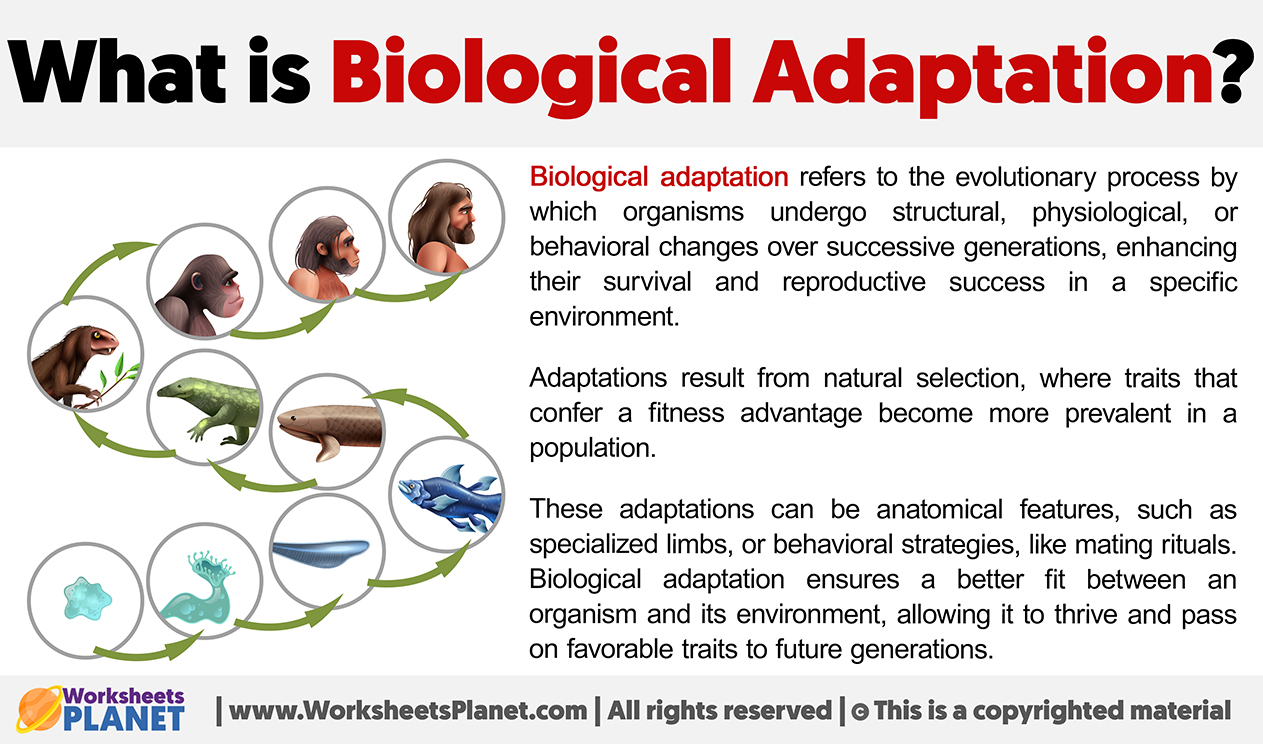Biological adaptation refers to the evolutionary process by which organisms undergo structural, physiological, or behavioral changes over successive generations, enhancing their survival and reproductive success in a specific environment.
Adaptations result from natural selection, where traits that confer a fitness advantage become more prevalent in a population.
These adaptations can be anatomical features, such as specialized limbs, or behavioral strategies, like mating rituals. Biological adaptation ensures a better fit between an organism and its environment, allowing it to thrive and pass on favorable traits to future generations.


